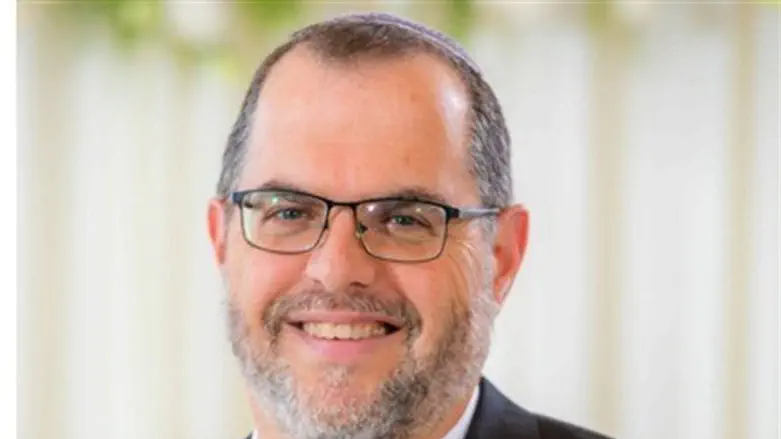
When one learns public speaking, one of the most important lessons is to save the most important message for the end of the address. In this week’s parsha Moshe Rabbeinu ends his long speech which comprises the entire book of Devarim. The speech had begun on Rosh Chodesh Shevat, and ends on the 7th of Adar - the day of Moshe Rabbeinu's death.
The purpose of Moshe's final discourse is to prepare the people of Israel for entry into the Land of Israel, and to strengthen them in their keeping of the Torah and mitzvot. It is interesting to observe and see with which words Moshe Rabbeinu chooses to end his homily.
In the parsha, after the song of “Haazinu”, Moshe Rabbeinu adds a few more sentences. The last sentence is "…because it (the Torah and mitzvot) is not an empty thing for you but it is your life and through it you will prolong your days on the land on which you cross the Jordan river to take possession of it.”
We will try to understand this verse according to the words of the Gemara Yerushalmi in Tractate Pei'a. The Gemara says: "Rabbi Mana said ‘because it is not an empty (ie. meaningless) thing for you’ and if it is empty then it is for you (ie. the fault lies in you). Why? Because you did not toil to understand the Torah and keep the mitzvot. ‘Because it is your life’ – when one works hard to learn the Torah and keep the mitzvot if becomes their lifeforce.”
During their forty years in the desert, the children of Israel received many commandments, and before his death Moshe Rabbeinu wanted to teach the children of Israel the general attitude towards those commandments. We now are hearing the “concluding principles” that Moshe Rabbeinu teaches the children of Israel as a summary to the entire Torah.
There are commandments which we understand, and there are commandments which we do not understand, but it is important for us to know that Torah is "not an empty thing" and there is nothing in the Torah that is not the absolute truth. All of the Torah’s commandments were given to us by the Creator of the world to correct and perfect us personally and the world in general, whether we understand them or not. And if G-d forbid we feel that there is a mitzvah which is "empty", then we need to remind ourselves that there is no mitzvah that is meaningless, but it is "empty for you", because we are flesh and blood with human wisdom, and we may have difficulty understanding the Divine wisdom.
After we know that there is nothing meaningless about the Torah and mitzvot "because it is not empty", and that if G-d forbid we feel that there is something meaningless we know that "it is empty for you", then comes the great challenge of "because it is your life". That is, we need to toil and expound effort in learning the Torah. The Torah is a gift from G-d which came down from heaven as Divine wisdom and was given to us to comprehend with our human minds, and as we learn more and more we narrow the gap between the two.
The desire to understand the commandments of G-d and feel connected to the observance of the Torah is a positive thing and is one of the signs of the redemption, but G-d forbid the observance of the commandments be conditioned on our understanding of them. The basis of our mitzvah performance needs to be that "nothing is empty for you" and that knowing that, we need to expound the time and energy to try and understand the commandments by studying the Torah "because it is your life".
Rabbi Shlomo Sobol serves as Dean and Founder at the Barkai Center for Practical Rabbinics and Community Development, and as rabbi of Kehillat Shaarei Yonah Menachem in Modi’in